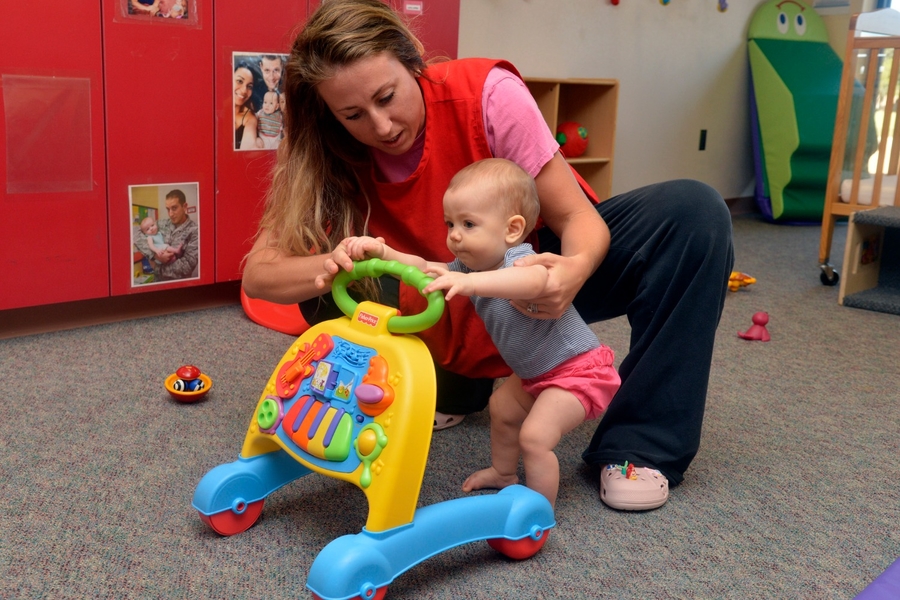
Pros And Cons Of Introducing A Walker To Your Baby
8 May 2019 | 4 min Read
vani
Author | 82 Articles
As Parents we are always curious and excited about our baby’s milestones. We can’t wait to see them crawling, walking and running. In order to make our babies mobile we decide to give them Baby Walkers. We find tons of variety of Baby Walkers and most of them also have features that keep the child engaged while giving free hands to mothers to do their chores.
Parents also offer walkers to babies to teach them to walk. Before they start walking, babies generally successfully achieve most of the preceding milestones like rolling over, sitting, crawling, pulling themselves up to stand and cruising. While most of these achievements take their natural course of time with support from parents, for some reason we tend to introduce a tool like walker when it comes to walking.
Walkers are generally introduced to children between the ages of 8-14 months, but with a pre requisite that babies can touch their feet to the floor when holding the walker and hold their heads up steadily. While there is no recommended age to introduce walkers, one should ensure baby’s strength and development in order to use a walker. Let us look at some pros and cons of introducing walkers to babies to make a better decision.
Pros
Walkers are Engaging:
Walkers come with lot of inbuilt activities and engaging toys which can help in baby’s cognitive development along with development of fine motor skills and sensory skills. Engaging toys like push toys can also keep them engaged for short periods of time.
Walkers make Baby Active:
Babies tend to become active in walkers since they are colorful and offer interactive games while giving them a realization of mobility. They are able to move from one place to another exploring things while increasing their curiosity.
Walkers teach Walking:
Walkers help baby to walk. It gives them the ability to move around with support and gives them a sense of independence.
Cons
Slows Walking:
Studies show that children who use walkers walk slower than other babies of their age.The baby kind of walks in a complete artificial intelligence mode. Babies tend to rely on walker for balance and are unable to balance naturally.
Misguides the body:
Generally bones above knees are used for walking, but with walkers baby tends to use the bones below knees which is not beneficial in long term.
Bended Feet:
Since babies with walkers walk within a limited space, they tend to adjust their feet and end up bending their feet inwards.
Dangerous side effects:
Walkers can increase baby’s reach to things making it dangerous. He is able to reach for hot, electric or sharp things and harm himself. Babies are unable to get a judgement of stairs and steps in some walkers resulting in a bad fall or injury.
Dragging versus walking:
Babies tend to drag their legs in order to pull their walkers along. This reduces their ability to go through the right process of lifting their feet up and down to walk. Also when babies learn to walk naturally, they tend to sit when they loose balance. This sit and stand routine is necessary to develop baby’s large muscles and enhance gross motor skills. The process also helps them learn the act of balance.
Now that you know the pros and cons of baby walkers, decision to give a baby walker to your baby is all yours. There are walkers which come with creative and engaging activities. May be you could lock those lockers and station them to be used for engagement purposes only and not really to teach walking. Researchers and American academy or pediatrics are slowly moving towards the decision to ban baby walkers but till then think wise before you make your decision. Letting your baby grow in the most natural way is always advisable.
Also read: First Year Baby Milestones: Grasping Skills
A


Related Topics for you
Suggestions offered by doctors on BabyChakra are of advisory nature i.e., for educational and informational purposes only. Content posted on, created for, or compiled by BabyChakra is not intended or designed to replace your doctor's independent judgment about any symptom, condition, or the appropriateness or risks of a procedure or treatment for a given person.
